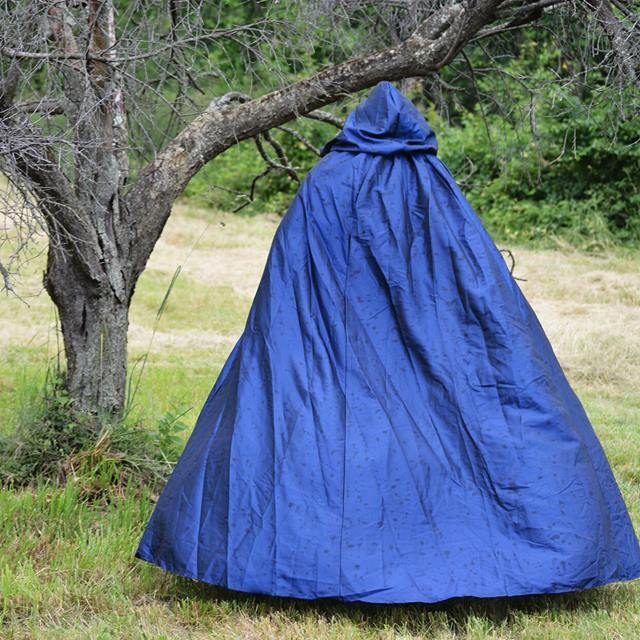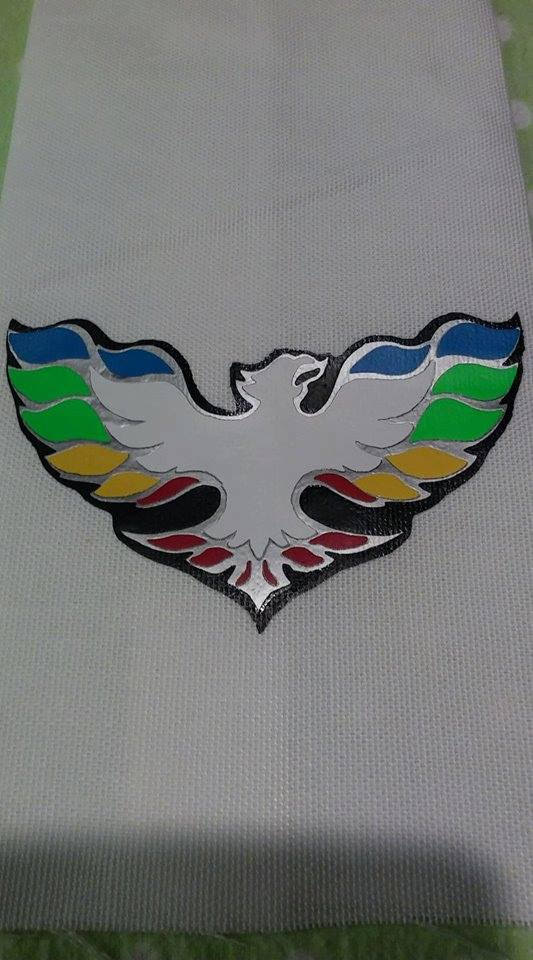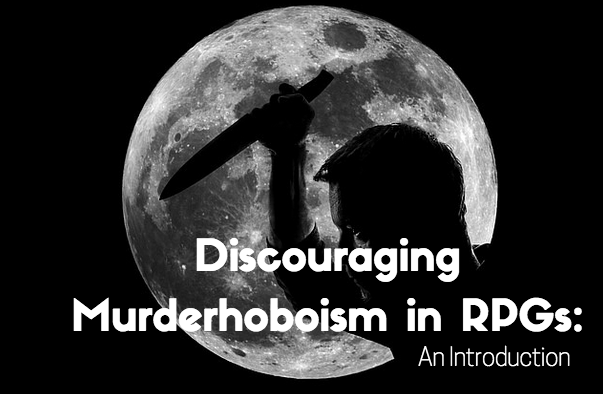In many larps (live action role playing games), game designers and organizers create faction-driven role play. This means the larp features groups of individuals meant to work together based on region, heritage, ancestry, guild, or more. In many larp systems, characters are part of more than one faction.
Many fantasy boffer larps in the U.S. will require you to select a starting region or kingdom, a class, a heritage or ancestry (formerly known as race), and a profession. Many parlor larps and destination larps provide similar connections. Larp organizers may facilitate these connections further by encouraging pre-planning, on-site workshopping, and in and out of game group bonding activities, before and during the larp. Larps with pre-written characters sometimes also include pre-established relationships to help you out.
Before we discuss switching larp factions, let’s take a look at how they function in larps.
If you’d like to skip to the free faction switching worksheet resource, go here.
Larp Factions: Why Are They Important?
This depends on the larp, but larp factions are important to drive collaboration between participants and conflict and alliances within the larp. Depending on the the world of your story, factions can create a fantastic backdrop for loyalty and betrayal. They also permit participants the opportunity to create and develop aesthetics, cultural norms, and habits related to each faction, which can increase in and out of game bonding.
As mentioned before, one player can have multiple groups of support, and the player or character may more strongly identify with one more than the other.
My New World Magischola character, for example, strongly identifies with her path (somewhat akin to a “class” in table top role playing games). When she started out at Magischola, her house was very important to her, but her goal was always to become a marshal (wizard cop). Now that she has achieved that goal, she serves her career objectives first while aligning herself with other organizations and individuals politically.
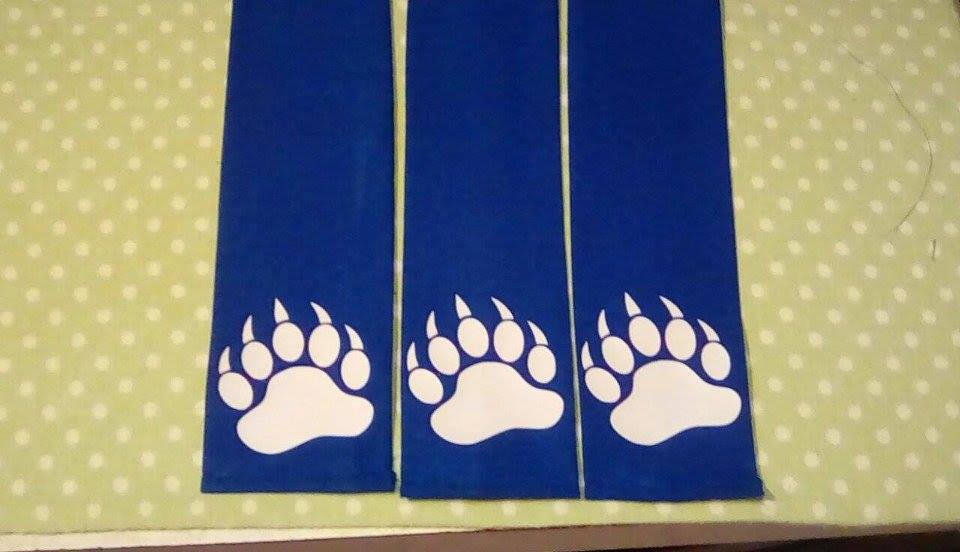
Paul from The LARP Project made these favors for me to wear at New World Magischola. Want custom favors? Order yours and let TLP know you found out about them here! thelarpproject@gmail.com
This also allows me more points of play: the character creates more connections since she’s operating not only on the connections of her former house, but her alma maters (primary school and wizard college), career path, extended family, and more.
A visitor walking into New World Magischola might have noticed the competitive house cup, my character’s decision to dress entirely in house colors much of the time, and her tenacity for earning house points and defending her house. What isn’t obvious is all those other layers and connections beneath, which may or may not be tied to the house connection.
While this character never switched factions and likely never will, another character based on the same initial character sheet did just that—to dramatic effect. While that isn’t my story to tell, learning about it from the player and other participants led me to see how my character could have gone down that road.
Why Switch Factions in a Larp?
I’ve switched factions with a few characters now, and as a faction leader in multiple larps, I’ve been in charge when someone else decides it’s time to make that leap to or from my group—or, as has been the case in the collaborative-competitive world of Dragon Thrones, betray the group. Here are some valid reasons to consider switching factions in the larp:
Player Discontent
The player is not happy with the role play they are getting in their current group. As it’s best to always consider the player first, creating an opportunity to switch factions might really help. It could be that they just aren’t finding the kind of plot hooks they need; there could also be in or out of game conflicts they don’t enjoy. Players come before larps and this is a valid and important reason to have a character switch factions.
Evolution of Bonds with Another Faction
The character has natural connections with other factions. Sometimes a character will just fit in better with another faction. Instead of making it awkward, it may be best for the character to head to the faction where they belong. Note: sometimes this is an unintentional development, and it can result in some player guilt—but let the story guide you.
Betrayal and Skullduggery!
Are you playing the kind of character who might betray their faction for any reason? You could hop aboard another faction and drop this information in a big reveal.
Survival
Does your character stand a better chance of survival in another faction? I once played a former faerie who was turned mortal, and one of the first things she did in her medieval fantasy setting was to begin the initiation process with one of the mortal factions. This helped her get the resources she needed and provided some protection, and she was able to culturally align and contribute a great deal to the faction as well.
Rejection
Does your character feel unwanted? Have they done something reprehensible? If the group rejects your character, it makes sense that they’d want somewhere else to go. When I played a character named Moira O’Connor in Armistice Arcane, she identified as a member of her initial faction through and through. Then their god showed up, things got a bit twisted, and Moira knew her people’s ways: she was in danger of being tried and put to death for doing blood magic.
That seemed like an opportune time to switch, so she left her faction and joined her son’s group instead. In this case, I got to play out the consequences of rejection, but also the fish out of water scenario.
Fish Out of Water
One of the most fascinating ways to further develop your character and their feelings towards their home culture (especially after boredom or stagnation) is to drop them into a radically different culture. We see this often in media—think about Marvel’s Thor without his powers as he lands on Earth.
The Quintessential Spy
Remember when Counselor Troi went undercover as a Romulan Tal’Shiar operative in Star Trek: The Next Generation? Troi had to absorb a phenomenal amount of information about another culture’s norms and structure to pull it off. After several seasons, it was fascinating to watch this character put her training in psychology to use in an entirely new way. This brought a new dimension to a character who was too often relegated to the role of scenery for the ship or comfort for men.
If you have a character capable of being covert, consider this method. Depending on the situation, would your character switch sides permanently, or only pretend to do it?
Serve the Story
If you feel your character pulling you in the direction of a faction switch and it would make things more interesting, that’s a good enough reason to workshop the idea. ‘Wouldn’t it be cool if…?’ is a valid way to consider faction switching and other elements of story progression.
How to Initiate a Faction Switch in Larps
If you decide to switch factions in a larp, there are a few ways you can handle it. Faction switching often stirs up a lot of emotions for people in and out of game. As someone who also plays a faction leader, I sometimes feel like I’ve failed when someone confesses the faction is not the right fit for them—but I’m really glad they tell me. I’m also happy to welcome in transfers from other factions and do my best to welcome them.
Step 1: Talk to the Organizers and Game Masters
In some larps, faction balance is crucial to the operation of the larp. Faction size can affect morale (in and out of game) as well as balance when it comes to any competitive element (battle effectiveness, house cups, awards, group recognition). For this reason, you may wish to bring your intention up with the organizer or game master first. If your faction switch happens between events, there’s usually a procedure for this.
Step 2: Speak with Faction Leads
It’s good to inform (in and out of game) your faction leads before making the switch if you can. Even if the transition is smooth, you should have an out of game conversation to ensure clarity about reasons and feelings for switching. I failed to do this once (although I was intentionally cast to be a controversial figure), and it led to hurt feelings, out of game, from the faction I left. While I mostly pursued the switch to the other faction in game, other faction leader checked in with me out of game to make sure I was aware of what the move would entail.
Sometimes, faction change can occur for a reveal or sudden reason, such as a betrayal, disillusionment, or disruption of a marriage alliance. Other times, it occurs over time as another faction is simply a better fit for the character. Either way, it’s important to have these out of game conversations when possible because bleed (the transference of emotions from character to player or vice versa) is real.
Step 3: Speak with Faction Players
Players in your old faction may have feelings and attachments to you and your character. If you make a move without telling them out of game, you have had time to mentally prepare yourself—but they have not. Consider filling them in if it feels appropriate for the larp and setting.
Step 4: Follow Up
When I switched factions at Armistice Arcane and Dammerung LARP, I maintained very warm feelings and friendships (out of game) with the players in my characters’ former factions. In both instances, I was playing a character tied to my real life heritage, and the players were very sensitive, supportive, and grateful for how I forwarded the story using a faction switch. I kept communication open in and out of game. At the last Dammerung LARP event, I headed over to my former faction’s cabin at the end of the event. I said hello and thanked my in-game antagonist for amazing role play. That little gesture went a long way, and when I showed up, they mostly took the initiative to thank me for the play first.
Once I came back from the larp and debriefed with my old faction some more, the leader of my new faction added me to the online groups and welcomed me there. This helped make the transition much smoother for me out of game, and it allowed me to read back and set my expectations appropriately.
Faction Switching and Consequences
When your character switches factions, both you and the character need to live with the fallout. Be prepared to deal with consequences, in and out of game. For me, the worst out of game consequence of faction switching is losing some of the out of game and bonding time I’ve had with the players in my character’s former faction.
After switching factions abruptly in Dammerung LARP, I had a lot of support from other players and directed cast. But I still felt sad when I went on Facebook and Discord and had to leave the players I’d planned and plotted with. The grieving process, out of game too, is normal, and I was able to talk to them and create new adventures with the newfound complexities that resulted from my character’s faction-switching. I have found that the best remedy for this involves finding other things you have in common with the players and continuing friendship on that. Alternatively, you can play other larps with them over time.
Honor the bond that started with your characters, but recognize that the friendship is built more on that. Currently, my best friend and I play in different larps. We’ve been friends for nearly a decade and all started as a close in game friendship. We now live in different states and don’t larp together as often as we’d like, but our friendship is built on much more than those characters (or larp).
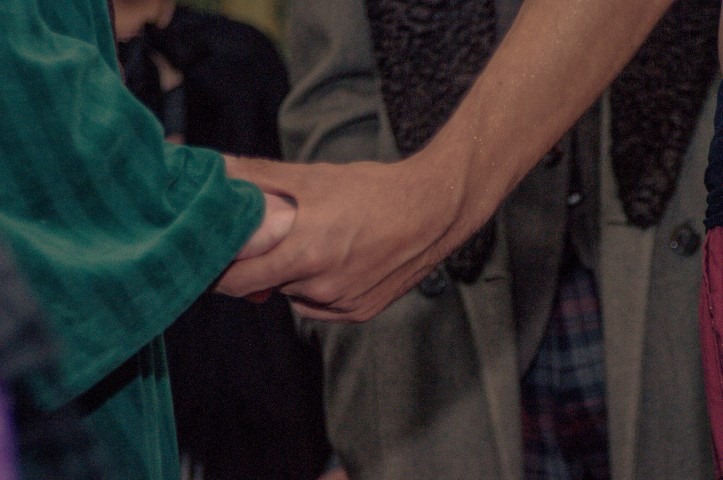
Moira O’Connor prepares to make the ultimate sacrifice before leaving her faction in Armistice Arcane.
When my former faerie went from a Disney princess-like character to an elite warrior over the course of years in Seventh Kingdom IGE’s campaign setting, I noticed that people didn’t necessarily want to see the character change. A lot of this bled out into the out of game friendships I had, and it was very hard to cope with as I went through major life changes in the real world, too.
Coping With Bleed and Communicating
Remember how I mentioned my marshal character from New World Magischola? One of the people who inspired her to pursue her career path so steadfastly was the marshal who recruited her to her internship. The guy who played that character is now my partner. You know what happened to his character? He became irredeemable and corrupt. He betrayed my character and the entire Marshal Service!
And once my character saw that her friends and colleagues were safe and protected, she quietly slipped out. Once I was out of game, the first thing I did was ask my partner for a hug. We’d played some intense, antagonistic scenes. It’s hard to play betrayal against someone you trust implicitly in real life, so the first thing we did was reaffirm the trust we have for each other out of game, as well as the affection. We talked about it a lot over the course of our ride home, with a few formal debrief questions, more affirmation of our real life relationship, and a lot of awesome war stories.
My character’s faction was now also her job—the marshals—and her feelings for my partner’s character really challenged that loyalty.
He really pushed my character development in ways that I wanted and helped me explore themes I wouldn’t have been comfortable tackling with anyone else, so gratitude was a big part of what I expressed. His play helped me wrap up my character’s time as a main character in the NWM so I can now explore other themes or bring her back primarily to support others’ play and needs.
And that’s what it’s important to recognize, with faction switching: you’re progressing your character and the story.
Larp Faction Switching: A Worksheet
I created a free resource to help you along with this. It’ll take 15-30 minutes to complete. Please click here to access the PDF file.
If these resources helped you, please consider buying me a coffee. Coffee makes more blog posts happen, and as a full-time writer and game designer, every little bit helps! If you’re not able to contribute, I understand. The biggest help and compliment is using the worksheet and advice effectively and sharing this post. Thank you so much.

